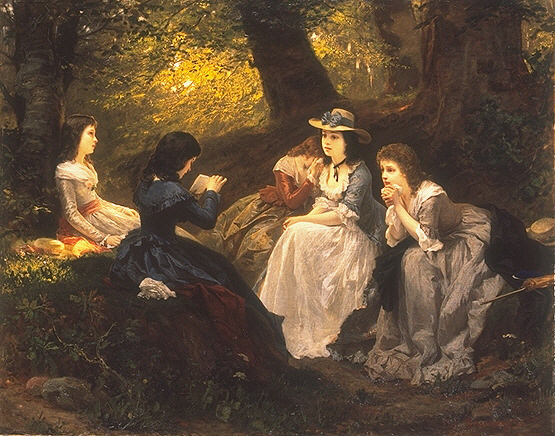Monday
I’ve talked in the past about the final assignment I give my students in my Theories of the Reader senior seminar. They are to choose a work of literature that became a public event and figure out what this tells them about the text-reader dynamic.
To this end, they are to find documents—reviews, letters, diary entries, newspaper accounts, fan fiction, literary responses, etc.—that provide insight into how and why readers responded as they did. They will need to scrutinize these documents, contextualize them, and construct a framework which explains the back and forth between work and reader.
To walk them through the process, I will be teaching Thomas Hardy’s Tess of the D’Urbervilles. We will look at the initial rejections of the manuscript, the changes that Hardy made to get it accepted for serial publication, the changes he made for the novel, his decision to add the provocative subtitle (A Pure Woman Faithfully Presented), the negative reviews, and Hardy’s response to those reviews. We’ll also look at a recent novel, Lily King’s The English Teacher, in which an English teacher has a fraught relationship with Tess for reasons that eventually become clear. Comparing and contrasting Victorian and contemporary responses will be revealing. In some ways, sexual assault and the issue of consent haven’t changed that much.
For today’s post, I compile a list of examples that I will give them so that they see what I have in mind. Sometimes a work is an event because it stirs up a group of readers, sometimes because it stirs up one very important reader (someone who has power and/or influence). Note that the interaction may occur when the book originally appeared or at some later period, maybe even centuries later.
Please feel free to send in suggestions. I will add any good ones to the list. Here’s what I’ve come up with so far:
–Why did the Earl of Essex pay for a special Globe performance of Shakespeare’s Richard II on the eve of his rebellion against Queen Elizabeth—and why did she, in turn, order a performance of the same play on the eve of his execution?
–Why did John Wilmot, Earl of Rochester, write poems about Charles II that periodically got him exiled from court? Why did Charles keep bringing Wilmot back?
–Alexander Pope’s Rape of the Lock was written to reconcile two warring Catholic families? Why didn’t it work?
–Why did parents hate Henry Fielding’s Tom Jones when it came out and why did young people love it, to the extent that they named their lap dogs Tom and Sophia and bought fans and screens illustrated with scenes from the novel.
–Similarly, why did parents hate and young people love Goethe’s Sorrows of Young Werther. And what are we to make of reports of young people committing suicide with copies of the novel in their pocket?
–Why was Wordsworth’s and Coleridge’s Lyrical Ballads such a sensation when it appeared?
–Why were 19th century readers shocked when they discovered that Wuthering Heights was written by a woman?
–What role did Uncle Tom’s Cabin play towards (in the words of Lincoln) “start[ing] this great war”?
–Why were charges of immorality brought against Flaubert’s Madame Bovary?
–Why would Oxford students link arms and stride defiantly through campus reciting the poetry of Algernon Charles Swinburne.
–Why was The Picture of Dorian Gray accused of corrupting young people (and why did certain of these young people have the novel all but memorized).
–Why did President Teddy Roosevelt fall in love with the poetry of Edwin Arlington Robinson?
–Why did Suffragettes champion Jane Eyre.
–Why have such novels as Mark Twain’s Huckleberry Finn, J. D. Salinger’s Catcher in the Rye, and Toni Morrison’s Bluest Eye, Song of Solomon, and Beloved been banned from various public schools?
–What does the Jane Austen boom of the late 20th and early 21st century tell us about the ourselves?
As I say, send in your own suggestions and I’ll share them here and with my students.


